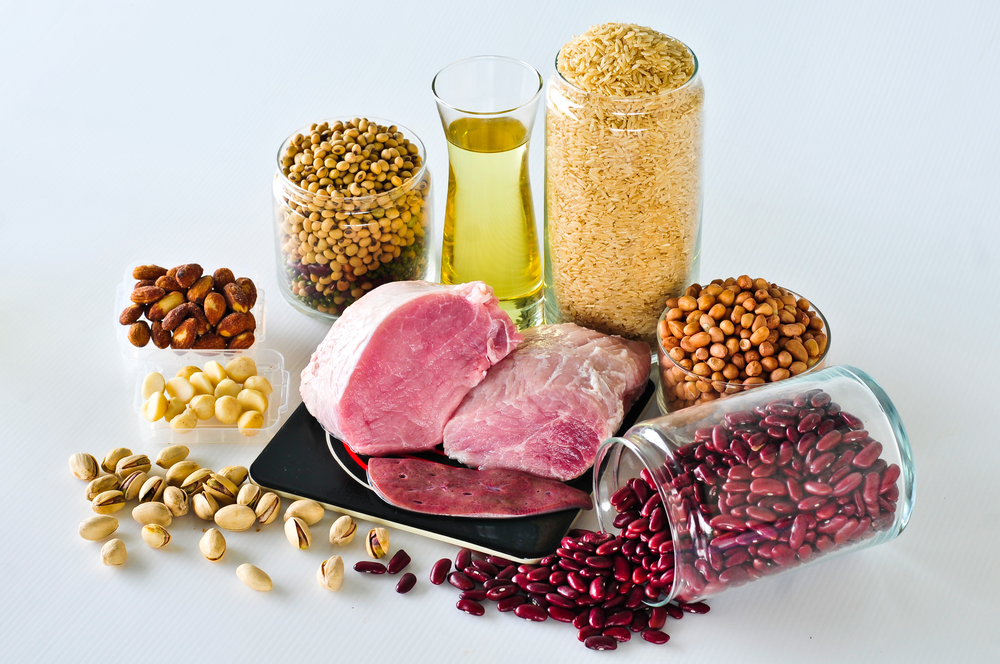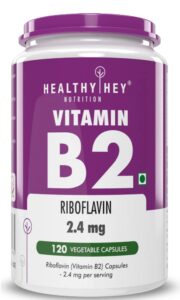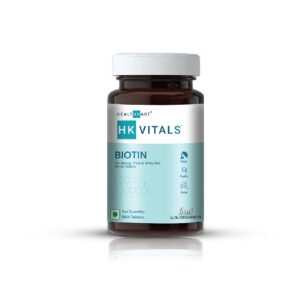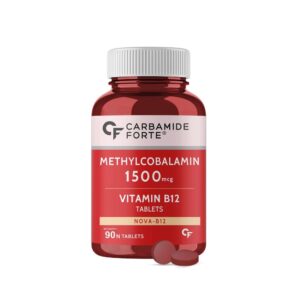The vitamin b complex is essential to your body’s processes, and can even help treat or prevent certain illnesses and health conditions. Although its deficiencies are uncommon but not rare. Due to lack of vitamin b complex, you can feel lethargic, inability to focus on study or work and some confused thoughts may arise in mind.
Learn more about the health benefits of the vitamin b complex below!
Vitamin complex consists
- B-1 Thiamine
- B-2 Riboflavin
- B-3 Niacin
- B-4 Choline ( Adenine)
- B-5 Pantothenic acid
- B-6 Pyridoxine
- B-7 Biotin
- B-8 Inositol
- B-9 Folic acid
- B-10 pteroylmonoglutamic acid
- B- 11 Levocarnitine
- B-12 Cobalamine
Vitamin B complex collectively has many benefits. It prevents infections and supports the following functions.
- Cell growth
- Growth of RBC
- Increases energy levels
- Maintain good eyesight
- Keep healthy brain function
- Help good digestion
- Increases appetite
- Promote proper nerve function
- Balances hormones and cholesterol production
- It Plays a major role in cardiovascular health
- Maintain muscle tone

bcomplex
Vitamin b complex deficiency
Most of us get enough B vitamins by eating balanced homemade food. But still in some cases deficiency can occur. It may be due to a lack of nutritious food or may be due to malabsorption.
These may be symptoms if you are having vitamin b complex deficiency.
- Cracks around the mouth
- Skin rashes
- Scaly skin on the lips
- Fatigue
- Swollen tongue
- Anaemia
- Weakness
- Irritability,
- Depression
- Confusion
- Abdominal cramps nausea
- Diarrhoea
- Constipation
- Numbness or tingling in the feet and hands
Despite healthy food, If you’re experiencing any of the above symptoms and could not sure why you may have vitamin b complex deficiency.
If not corrected within time, these deficiencies could lead to the development of
- Digestive problems
- Peripheral neuropathy
- Infections
- Anemia
- Skin conditions like dermatitis
- neuropsychiatric disorders

Vitamin b1
It is known as Thiamine. It is very essential to our body. Humans need a continuous supply of it because it is not stored in our bodies. Hence we must have thiamine in our daily diet.
Vitamin b1 help our body to make energy from carbohydrate, hence it is crucial for our fitness.
Thiamine maintains our nerve supply and also help us our heart muscle, stomach, intestine to work properly.
Cheese, chicken and apple do not contain this vitamin b1, hence we need vegetarian food for b1. Foods that have thiamine are cauliflower, potatoes, eggs, liver and oranges.

Vitamin B2, Riboflavin
Riboflavin is a water-soluble vitamin, which means that it dissolves in water. This also means that, unlike fat-soluble vitamins, Riboflavin does not accumulate in your body and you excrete excess amounts through urine. The RDA for adult men and women over 19 years old is 1.3mg/day. However, most healthy people who eat a well-balanced diet should consume at least twice that much every day.

Vitamin B3, Niacin
Niacin helps maintain normal circulation, supports heart health and regulates cholesterol levels. Niacin, also known as vitamin B3, is a water-soluble vitamin that contributes to cellular energy production. As such, niacin can help reduce body fat when combined with exercise. The average adult should consume between 14 and 16 milligrams (mg) of niacin daily; pregnant women need 18 mg each day while breastfeeding requires a higher amount of 20 mg daily to prevent maternal deficiency syndrome in infants.

Vitamin B5, Pantothenic Acid
If you’re deficient in Vitamin B5, or pantothenic acid, it can cause anaemia and fatigue. The body requires vitamin B5 to convert carbohydrates into glucose and it also helps manage stress levels. A deficiency can cause decreased muscle function, skin problems and gastrointestinal issues as well. In order to get enough Vitamin B5 into your diet, consume a variety of foods like eggs, whole grains, red meat and fish.

Vitamin B6, Pyridoxine
Pyridoxine, or vitamin B6, is a water-soluble vitamin that’s essential for optimal health. It’s well-known for supporting adrenal health and regulating hormone levels, but it has other benefits as well.
Vitamin B7, Biotin
It is also known as a hair and skin vitamin.

This water-soluble vitamin plays a key role in cell metabolism, which is why a deficiency in biotin can result in hair loss and skin disorders. This nutrient is crucial for metabolizing fat, protein, and carbohydrates and maintaining healthy skin, hair, and nails.

Vitamin B9, Folate
This vitamin plays a role in DNA production, which is crucial for cell growth and maintenance. Folate may also lower your levels of homocysteine, an amino acid that’s linked to an increased risk for cardiovascular disease. In fact, taking 4 milligrams daily for about two years lowered homocysteine levels by 9 per cent in people who already had normal folate levels.
Vitamin B12, Cobalamin
Cobalamin (also known as vitamin B12) is essential for red blood cell production, neurological function, and DNA synthesis. It may also protect against anemia and degenerative nerve disease. Your body can’t make vitamin b12 naturally, so you must obtain it through food or supplements. Unfortunately, deficiency is relatively common in older adults.

sources of food having b complex
Folic acid (folate) is also present in food sources. These include beans, lentils, oranges, peas, green leafy vegetables and whole grains. Nuts and seeds also provide considerable amounts of folic acid. Vitamin B12 can be found in a variety of meat products like fish, chicken and beef as well as dairy products including milk and cheese. It is very rare for someone to not be able to find adequate amounts of vitamin B12 within their diet so supplementation is usually unnecessary for most people. However, it can be helpful for those who don’t eat a wide variety of foods or who are unable to absorb vitamin B12 through their intestinal tract as they get older.

The daily requirement of b-complex
As you get older, it’s important to take in enough B vitamins, especially vitamin b12 and folate. While adults are advised to take in 2.4 micrograms of folate per day and 2.6 micrograms of vitamin b12, there are many other benefits of the vitamin b complex that you might not know about. Here are some surprising benefits
Diseases of b complex deficiency
While some individuals have an underlying health issue that prevents them from absorbing vitamin B, for most people, a deficiency can be attributed to a poor diet. Because our bodies need vitamin B in order to function properly, it’s important to maintain a healthy lifestyle and eat a wide variety of foods rich in the vitamin B complex. When these nutrients are lacking, various diseases can occur, including depression, fatigue and migraines. While it may not sound fun to live with these symptoms on a daily basis, supplements or foods that contain vitamin B complex can help reverse them and keep your body functioning normally.
[contact-form][contact-field label=”Name” type=”name” required=”true” /][contact-field label=”Email” type=”email” required=”true” /][contact-field label=”Website” type=”url” /][contact-field label=”Message” type=”textarea” /][/contact-form]


